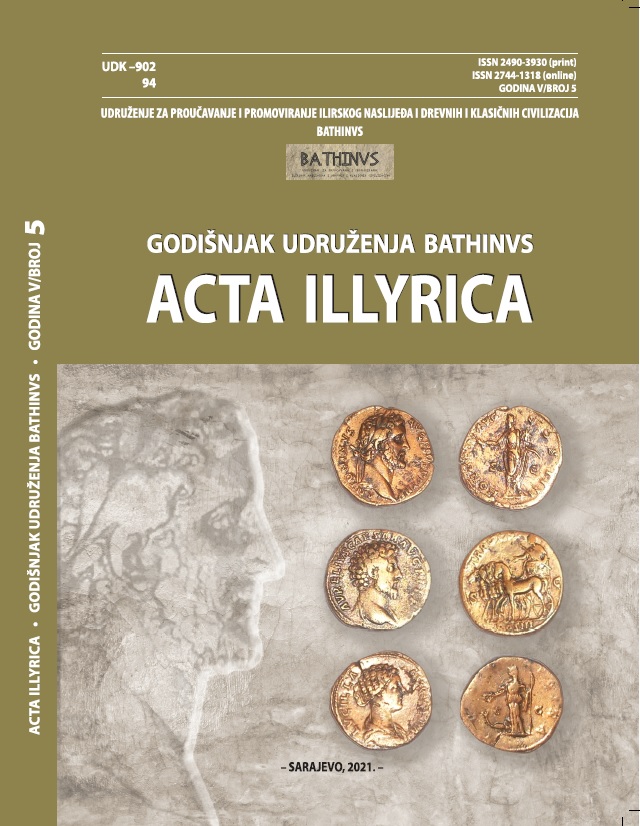Hrvatska historiografija o Velikom ilirskom ustanku
Croatian Historiography on the Great Illyrian Uprising
Author(s): Dženana KahrimanSubject(s): History, Military history, Ancient World
Published by: Udruženje za proučavanje i promoviranje ilirskog naslijeđa i drevnih i klasičnih civilizacija “BATHINVS”
Keywords: Great Illyrian Uprising; Bato’s uprising; historiography; methodology; Croatia; Bato the Daesitiate; Bato the Breucian; Roman Empire;
Summary/Abstract: Historiography of the Great Illyrian Uprising is an excellent indicator of the claim that every present builds a new relationship to the past according to its own values. Layered national relations should be taken into account when studying the history of the Western Balkans. For this reason, it is much more difficult to find works that, within their thematic units, treat Baton’s uprising. Such a practice was especially present in the nineteenth and twentieth centuries. Many nations created their own myths, and it could be pointed out that Baton’s uprising was not “authoritative” in creating such an image. It is precisely the task of modern historians to distance their works from myths, to purify them, and to present what is recorded in the sources. However, they are also sometimes prone to certain prejudices, misinterpretations of sources, exaggeration and stereotypes.They are certainly affected by the environment in which they create, their origin, their education and their ideological views, whether consciously or unconsciously. There is still no monograph in the Croatian scientific community that is entirely dedicated to the Uprising, but the works of Croatian scientists represent an immeasurable contribution to understanding the problems of the Baton Uprising. It is striking that the Uprising in the socialist period was viewed through the ruling ideology, so the descriptions of the conflict between the indigenous communities and the Romans were sometimes reminiscent of scenes from partisan films. The post-Yugoslav approach is already visible in Mate Suić’s1991 paper. In the modern period, two names stand out, namely Alka Domić Kunić and Danijel Džino. On the occasion of the 2000th anniversary of the end of the Uprising, a gathering called BELLVM BATONIANVM MM was held in the Croatian capital, Zagreb. Unfortunately, the results of the meeting were never officially announced, and they would certainly open some new questions about this event.
Journal: Godišnjak Udruženja BATHINVS “Acta Illyrica”
- Issue Year: 5/2021
- Issue No: 5
- Page Range: 149-170
- Page Count: 22
- Language: Bosnian

